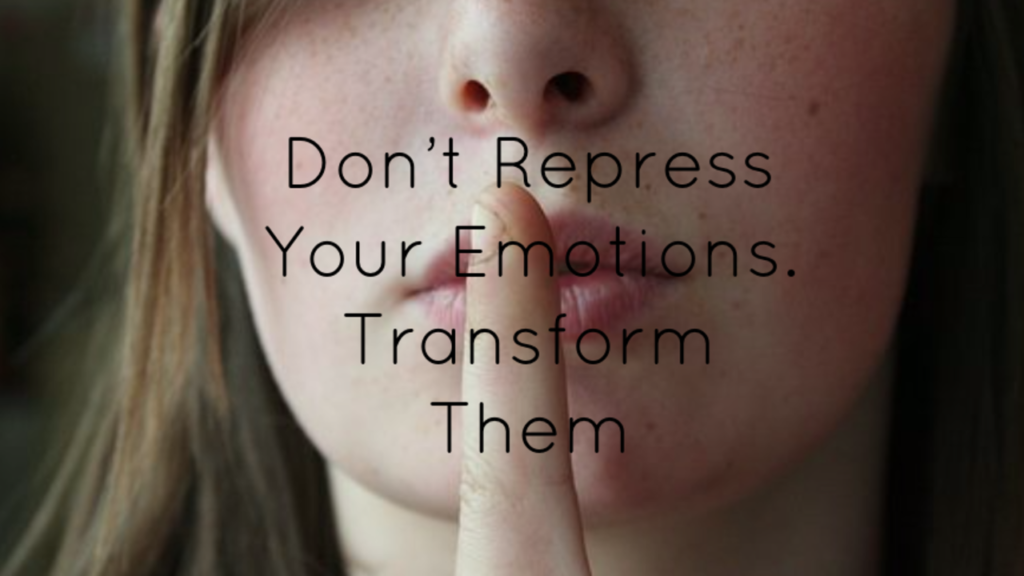What do you think would happen if the stress of everyday life were released from your body? If it were possible, how might this affect your emotional and physical state? How about your relationships with other people? Could there be a relationship between repressed emotions and depression or anxiety disorders that go untreated for years on end? In this article, we’ll explore what can happen when you don’t deal with the stress in your life.
What are Repressed Emotions?

To start, let’s define what we mean by repressed emotions. Repressed emotions are feelings that you’ve pushed down and tried to forget. Maybe you are not dealing with your emotions because they are too hard. But if you don’t deal with them, they will find a way out. You might express them in an unhealthy way, like through anger or violence. Or you may suppress your emotions so much that you start to feel numb.
When you have repressed emotions, it can be hard to have healthy relationships with other people. You may find yourself pushing people away because you are afraid of getting close to them. Also, you may also find that you are not very happy with your life. You may feel like you are stuck in a rut and can’t get out.
Why Do These Emotions Occur?

So why do we have these emotions in the first place? There are several reasons. Sometimes, people who were abused as children repress their emotions so they don’t get hurt again. They feel like it’s better to push down how they feel than to deal with the pain that comes when you express your feelings.
Other times, people who grow up in an unstable family environment repress their emotions. They may feel like it’s not safe to express themselves and show how they feel because of the chaos that surrounds them. They may also be afraid that if they show their feelings, something bad will happen to them.
Some people repress emotions because of a trauma in their life. This could be anything from being bullied at school or suffering the death of a loved one. These kinds of traumas can have long-lasting effects on your mental health and well-being.
What Emotions Get Repressed?

So what emotions do we repress? The most common ones are sadness, anger, fear, and shame. But any emotion can be repressed if it’s too painful to deal with.
This problem comes back to when you were a child. Maybe your parents said things like:
- “You don’t need to be sad.”
- “Don’t worry.”
- “You should be happy that you do not have something worse.”
Physical Symptoms Of Repressed Emotions
When you have repressed emotions, it can be hard to tell what is going on. You’ll feel out of sorts and may not know why. Sometimes the only way to figure this out is by looking at your body’s physical symptoms.
You might experience headaches or stomach aches that no medication seems able to cure. If you are suffering from repressed emotions, you may get sick more often than other people. You might find yourself fatigued or have a hard time getting out of bed in the morning.
Repressed Emotions And Relationships

One of the most difficult parts about having repressed emotions is that it can be very hard on your relationships with others. People who have repressed emotions often find themselves pushing others away. They may feel like it’s better to be alone than to deal with the pain of having people close.
This can be extremely frustrating for those around them, who see how unhappy these people are and want so badly to help. But they don’t know what is going on and don’t know how to make things better.
People with repressed emotions may also find that they are not very satisfied with their lives. They may feel like they are stuck in a rut and can’t get out. This is because they are not expressing themselves in the way that they want to.
How Do I Know If I Have Repressed Emotions?
The first thing you have to do is ask yourself if this sounds like something that might be going on for you. Have you been feeling out of sorts lately? Are there certain emotions that scare or upset you because they are too hard for you to deal with?
Here are some questions to help get your thinking started:
- Do I find myself pushing people away?
- Have I ever felt like my life is not what I want it to be?
- Do I have a lot of physical symptoms that don’t seem to have a clear cause?
- Am I unhappy more often than not?
If you answer yes to any of these questions, then you may be repressing your emotions.
Feelings
People who have felt that they do not want to think about often have trouble naming and understanding their emotions. This can make it hard for them to tell others how they are feeling. It can also make it difficult for them to know when something in their life is not working.
You might:
- Feel faint or blank daily.
- Even if you aren’t sure why, you may feel nervous, low, or stressed a lot of the time.
- It’s all too easy to overlook certain things as we age.
- When other people tell you about their feelings, you might feel anxiety or discomfort.
- You should always be cheerful and mild because you will never allow your thoughts to linger on anything vital or distressing.
- feel distressed or irritated when someone asks you about your feelings
- We have a hard time telling others what we feel.
Behavior
People who have repressed emotions often find that they act differently than they want to. This can be because they are not expressing themselves in the way that they want to. They may also find that they are very reactive and tend to overreact to things.
You might:
- Behave in a way that is the opposite of how you want to.
- Feel like you are not in control of your own life.
- Have a lot of anger or frustration inside that you don’t know how to deal with.
- Find yourself overreacting a lot to things.
- Tend to bottle up your emotions instead of expressing them.
Suppression vs. Repression
There is a big difference between suppression and repression. Suppression is when you are aware of your emotions but choose to ignore them. Repression is when you are not aware of your emotions or why you are feeling the way that you do.
If you think that you may be repressing your emotions, it is important to seek out help from a therapist or counselor. They can help you to understand why you are feeling the way that you do and how to start dealing with those emotions.
It is never too late to get help and start living a happier life.
How Do I Release Repressed Emotions?

It can be difficult to simply let go of all of the emotions that you have been repressing. You may need the help of a counselor or therapist to do this effectively.
When it comes down to it, dealing with these feelings is like doing any other sort of work—it has to be done on an everyday basis if you want to see results.
There are a few things that you can do in your everyday life to help release repressed emotions:
- Talk about the emotions that you are feeling, even if they scare or upset you.
- Write down your thoughts and feelings in a journal.
- Exercise regularly. This can help to release tension and stress.
- Permit yourself to cry.
- Take care of your body and health by eating healthy food, getting enough sleep, and drinking water.
Keep in mind that it is never too late to start dealing with emotions that you have been repressing for a long time! You can begin today even if the process seems daunting at first. It will get easier as you continue to work on it.
Conclusion
In a study by the University of Michigan, participants were shown pictures that provoked strong emotions. Those who suppressed their emotional response showed increased activity in an area of the brain known as the amygdala. This is also where memories and associations are formed, which may be what led to more creative responses from those who did not show outward signs of emotion during this experiment. If you want others to remember your message or product when they experience it for themselves, consider how suppressing your own feelings might help them process information better than if you let yourself get swept up in all the different facets of human nature!
If you are looking for affordable Online Counseling MantraCare can help: Book a trial therapy session


